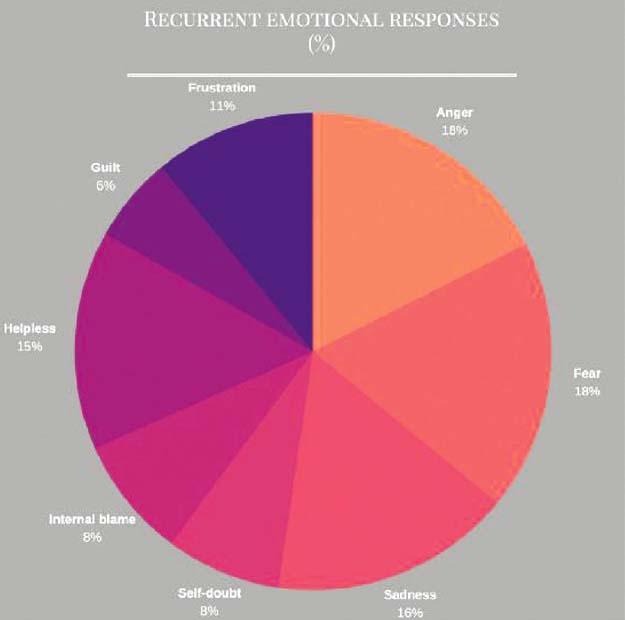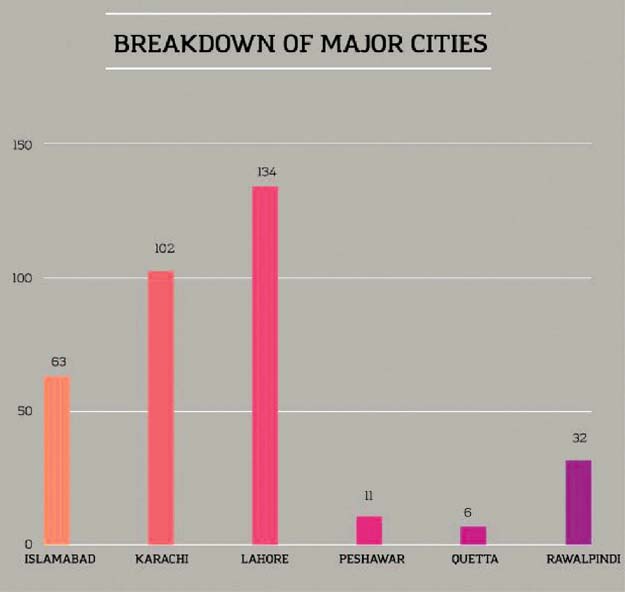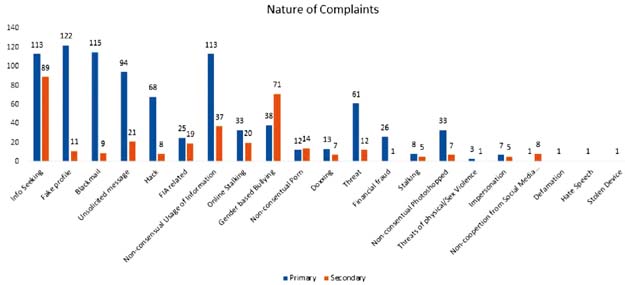Report reveals surge in online harassment cases
With an average of 82 calls per month, 63% of callers were women

PHOTO: AFP
Cyber crime: Social media activist released amid PTI's hue and cry
With an average of 82 calls per month, 63% of the calls were made by women, whereas 37 % of the calls were made by men. The helpline received 703 calls on the helpline out of which 569 callers were calling for the first time.

This data is based on a sample of 50 calls where psychological data was recorded. GRAPHS: DIGITAL RIGHTS FOUNDATION
According to the report, the Cyber Harassment Helpline also began identifying the mental health consequences of cyber harassment with a descriptive and psychological review of the calls. According to the analysis, out of a sample of 50 callers who gave psychological data, 18% experienced fear and 18% felt anger which further led to depression among 17%, insecurities 19%, disturbed sleep 15%, withdrawal from family and friends 14%, anxiety/paranoia 10%, suicidal thoughts 5%, chronic stress 16% and problems in relationships among 4%.
While 21.2% of the callers did not want to disclose their location, the operators were able to identify that most of their callers on the helpline were from Punjab around 44%. The helpline also received calls from Sindh 19.1%, Khyber Pakhtunkhwa 5%, Balochistan 1.6%, Azad Kashmir 0.6% and the Federal Capital, Islamabad 8. 7%.

This data is based on the number of individual cases
According to the report, these figures only reflect information that has been reported to the helpline and not the general state of cyber harassment in the country.
According to the report, Facebook remained the most widely reported platform where people face the most harassment. Among the kinds of harassment reported, complaints of fake profiles, nonconsensual use of information, blackmailing, hacked accounts and devices and unsolicited messages were the most common ones.
The report details the data collected by the Helpline team and recommendations on how to improve the institutional response to online harassment.
The Cyber Harassment Helpline is Pakistan’s first dedicated helpline addressing issues of online abuse and violence providing a free, safe, gender-sensitive and confidential service. The Helpline Support Staff gives legal advice, digital security support and psychological counselling to victims of online harassment.

The helpline support staff categorised the nature of complaints according to the facts of each case.
Building on this data, the DRF has put forth some recommendations for the government and law enforcement agencies to improve the reporting mechanism regarding cyber harassment.
The report acknowledges the National Response Centres for Cyber Crime (NR3C) of the FIA have limited resources and are understaffed which has led to a delay in registration and investigation of cases.
The report identifies the need to establish a rapid response cell in the NR3C since certain cases of cyber harassment are sensitive and require immediate action. The report also suggests that gender sensitisation trainings for current staff are extremely important along with better coordination with other departments working in gender issues.
It further suggests that the FIA’s NR3C needs to address the psychological needs of the complainant and maintain their privacy and confidentiality while registering a complaint.
Harassment central: Punjab emerging as hotbed of cyber bullying
According to the report, 50.6% of helpline callers cannot approach the FIA without leaving their city of residence, as they are currently limited to major cities of Pakistan and therefore, FIA’s National Response Centre needs to expand their operations to more cities to ensure every individual gets access to justice.
Digital Rights Foundation is a registered research-based advocacy non-governmental organisation in Pakistan. Founded by Nighat Dad in 2012, DRF focuses on ICTs to support human rights, inclusiveness, democratic processes, and digital governance. DRF works on issues of online free speech, privacy, data protection and online violence against women.
Published in The Express Tribune, July 22nd, 2017.



















COMMENTS
Comments are moderated and generally will be posted if they are on-topic and not abusive.
For more information, please see our Comments FAQ